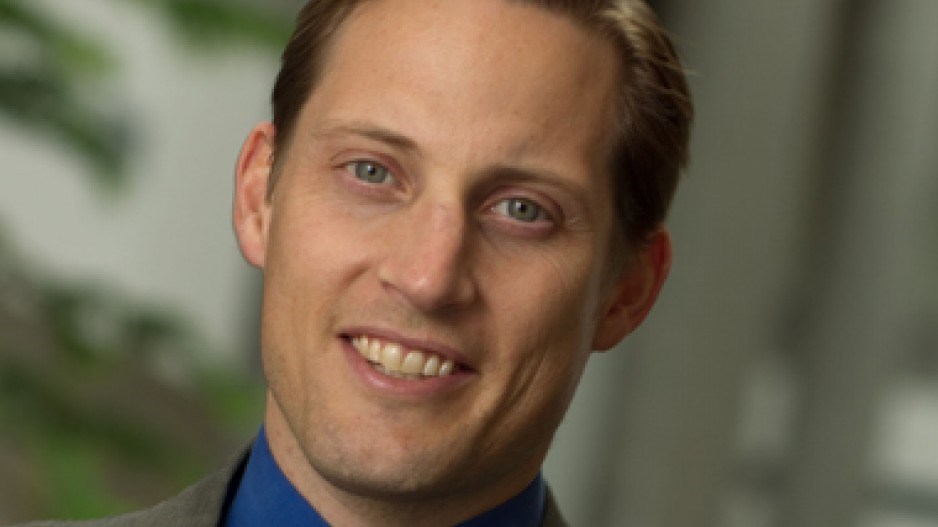Business in Vancouver's "How I Did It" feature asks business leaders to explain in their own words how they achieved a business goal in the face of significant entrepreneurial challenges. In this week's issue, Toby Reid, founder and CEO of Solegear Bioplastics, talks about the challenges he faced building his company, including technical problems related to turning plant starch into a durable, biodegradable plastic, and an internal battle with former managers that required court mediation.
"I'm a finance guy – I used to work on Bay Street – and also a sustainability guy – I worked for Mountain Equipment Co-op [MEC] for about six years.
"While I was at MEC, the opportunity to look for ways to replace plastics came up through a product idea I had, which was a durable and compostable plastic for laptop bags. I went up and down the MEC supply chain for several months and essentially was told 'no' everywhere I turned. The material didn't exist. That was a great learning for me to understand there's a huge opportunity for sustainable materials in the plastics industry.
"I met a chemical engineer two days after the idea struck. We came up with a plan for developing the material ourselves, and we began working with the University of British Columbia in [its] lab. We also got financing from the National Research Council.
"There are four people on our patent [for Polysole]. It took us about four and a half years to solve the technical challenges. We get plant starch from a non-food grade of corn. Now we've got another generation where we're using forestry waste and agricultural waste.
"We announced in 2010 that we had created Polysole platform and it was ready for commercialization. Early on, we were aiming for durable plastics: toys, electronics. Now we've been able to expand it to include rigid packaging and durable packaging.
"One of the biggest challenges I had was building the management team. We got into a situation where I had a couple of people involved previously who had different plans for the business. They tried to take ownership of the company by registering a name very similar to ours.
"We ended up getting a decision from the BC Supreme Court to have a parting of the ways with those managers. That was a big challenge because it happened during a time when the business was just trying to grow, and it put a lot of strain on the organization and the balance sheet.
"Last year, we received a strategic investment from Best Buy Capital [the investment arm of Best Buy Co. Inc. (NYSE:BBY)]. It was a six-figure investment, which made a significant impact on our business. What that allowed us to do is a little bit more product development work to meet the needs for the consumer electronics industry.
"We're expecting our business to generate $6 million in revenue this coming year and we're expecting to close our Series B financing this year. That's going to be in the high single digit millions. And we're also expecting to continue to grow the team from 12 people to about 20 by the end of this year." •




